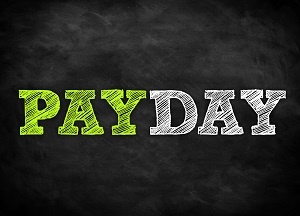 Do remember your first paycheck? It’s a big milestone in a person’s life, providing not only money but also independence. A paycheck gives us the means to survive as well as the ability to pursue the lifestyle and the future we envision for ourselves. Once we start earning a paycheck, we may take it for granted – but what happens when our ability to earn a paycheck ends?
Do remember your first paycheck? It’s a big milestone in a person’s life, providing not only money but also independence. A paycheck gives us the means to survive as well as the ability to pursue the lifestyle and the future we envision for ourselves. Once we start earning a paycheck, we may take it for granted – but what happens when our ability to earn a paycheck ends?
Where Do Our Paychecks Go?
If it seems like most of your paycheck is gone as soon as you get it, you’re not alone.
According to the Bureau of Labor Statistics, the average household income was just over $73,000 is 2017, while the average expenditure was $60,000.
- $19,884 was spent on housing.
- $7,729 was spent on food.
- $9,576 was spent on transportation.
- $4,928 was spent on health care.
- $3,203 was spent on entertainment.
- $1,833 was spent on apparel and services.
- $1,491 was spent on education.
Although some people manage to squirrel away funds for retirement and other future plans, many do not. A 2017 survey from CareerBuilder found that 78 percent of U.S. workers are living paycheck to paycheck. Women are especially likely to live paycheck to paycheck at 81 percent.
This means that if a paycheck stops, it will be missed immediately.
How Many Paychecks Does the Average Person Earn?
Many workers in the U.S. are paid every other week, which means that they’ll earn 26 paychecks each year. How many years a person works varies, both because people enter the workforce at different ages and because people retire at different ages. A person who works for 40 years will earn 1,040 biweekly paychecks.
Many people assume that they’ll keep earning paychecks until they decide to retire. Unfortunately, this decision is often taken out of people’s hands. Some people who want to continue working may be forced to stop due to disability.
It’s more common than most people want to believe. According to the Social Security Administration, more than one in four of today’s 20-year-olds will become disabled before they reach retirement age.
How Can People Protect Their Paychecks?
People are used to using insurance to protect the things that matter to them, whether it’s their house, their car or their health.
But what about paychecks? A paycheck is one of the most valuable things a person has, so it makes sense for people to get paycheck protection, too. Disability insurance offers an important safety net for anyone who depends on a paycheck. Contrary to popular belief, it’s not just for doctors. Middle income professionals need paycheck protection too. Share this message with your clients. Help them understand that their paychecks DESERVE protection.
Looking for resources? Download our Marketing Guide for Millennials and our most popular consumer handout, Four Reasons for Paycheck Protection.
